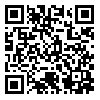جمعه 1 اسفند 1404
[Archive]
دوره 13، شماره 4 - ( 7-1404 )
جلد 13 شماره 4 صفحات 318-309 |
برگشت به فهرست نسخه ها
Download citation:
BibTeX | RIS | EndNote | Medlars | ProCite | Reference Manager | RefWorks
Send citation to:



BibTeX | RIS | EndNote | Medlars | ProCite | Reference Manager | RefWorks
Send citation to:
Abdoli Kotiyani S, Homaei R, Jayervand H, Bavi S. Effectiveness of an Attachment-based Family Program on Emotional Awareness and Social Desirability in High School Students. PCP 2025; 13 (4) :309-318
URL: http://jpcp.uswr.ac.ir/article-1-1034-fa.html
URL: http://jpcp.uswr.ac.ir/article-1-1034-fa.html
Effectiveness of an Attachment-based Family Program on Emotional Awareness and Social Desirability in High School Students. Practice in Clinical Psychology. 1404; 13 (4) :309-318
چکیده: (909 مشاهده)
Objective: This study aimed to investigate the effectiveness of an attachment-based family program in enhancing emotional awareness and social desirability among male high school students.
Methods: A quasi-experimental design, incorporating pre-test, post-test, and follow-up assessments with a control group, was employed. The study population comprised all male second-grade high school students in Karun County, Iran, during the 2023-2024 academic year. Through purposive sampling, 30 eligible students exhibiting low emotional awareness and social desirability were selected and subsequently randomized into an experimental group (n=15) or a control group (n=15). The experimental group participated in an 11-session attachment-based family program, carefully designed to enhance family dynamics, communication, and emotional regulation. Data were collected using the emotional awareness questionnaire (EAQ-30) and social desirability scale (SDS). For data analysis, SPSS software, version 27 was utilized, primarily employing mixed-model analysis of variance with repeated measures.
Results: The findings revealed significant improvements in both emotional awareness and social desirability within the experimental group at post-test and follow-up stages compared to the control group (P<0.001).
Conclusion: These results suggest that attachment-based family programs are an effective intervention for promoting emotional awareness and social desirability in adolescents. Consequently, its implementation in family counseling settings is supported, offering a valuable strategy to mitigate common adolescent challenges.
Methods: A quasi-experimental design, incorporating pre-test, post-test, and follow-up assessments with a control group, was employed. The study population comprised all male second-grade high school students in Karun County, Iran, during the 2023-2024 academic year. Through purposive sampling, 30 eligible students exhibiting low emotional awareness and social desirability were selected and subsequently randomized into an experimental group (n=15) or a control group (n=15). The experimental group participated in an 11-session attachment-based family program, carefully designed to enhance family dynamics, communication, and emotional regulation. Data were collected using the emotional awareness questionnaire (EAQ-30) and social desirability scale (SDS). For data analysis, SPSS software, version 27 was utilized, primarily employing mixed-model analysis of variance with repeated measures.
Results: The findings revealed significant improvements in both emotional awareness and social desirability within the experimental group at post-test and follow-up stages compared to the control group (P<0.001).
Conclusion: These results suggest that attachment-based family programs are an effective intervention for promoting emotional awareness and social desirability in adolescents. Consequently, its implementation in family counseling settings is supported, offering a valuable strategy to mitigate common adolescent challenges.
نوع مطالعه: پژوهشي |
موضوع مقاله:
خانواده و گروه درماني
دریافت: 1404/2/27 | پذیرش: 1404/6/30 | انتشار: 1404/7/9
دریافت: 1404/2/27 | پذیرش: 1404/6/30 | انتشار: 1404/7/9
| بازنشر اطلاعات | |
 |
این مقاله تحت شرایط Creative Commons Attribution-NonCommercial 4.0 International License قابل بازنشر است. |



